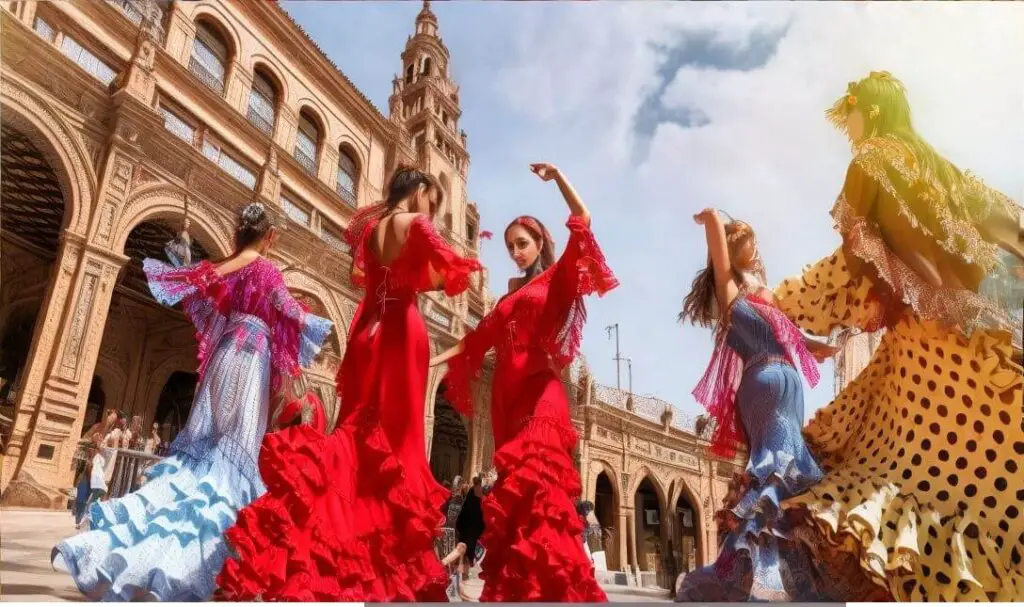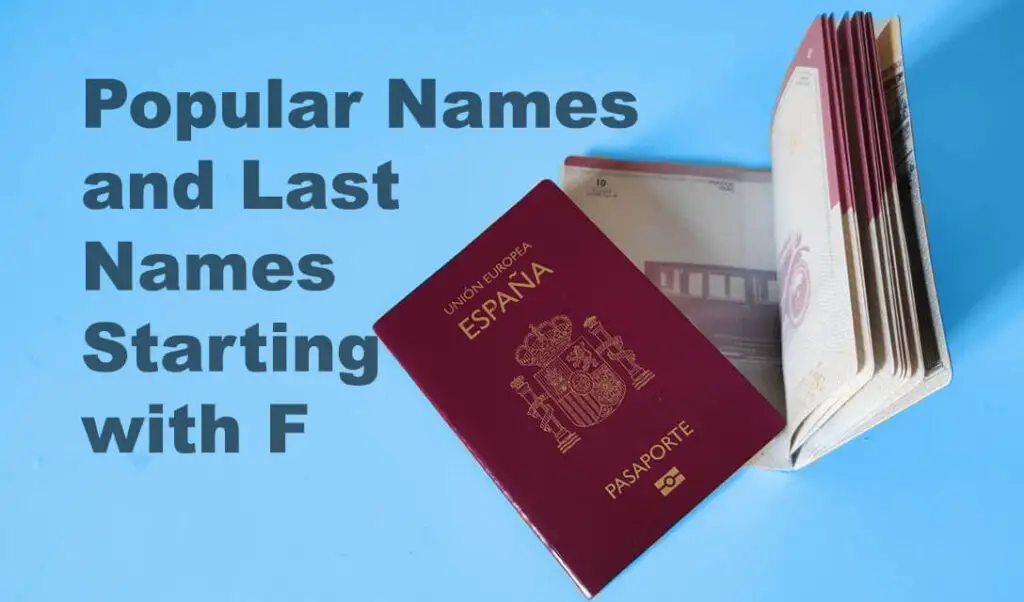Welcome to our in-depth exploration of the letter F in Spanish. In this comprehensive article, we will unveil the significance and usage of the letter F, shedding light on its role in expanding vocabulary and enhancing cultural understanding.
The letter F holds a prominent position in the Spanish alphabet, and understanding its pronunciation is crucial for effective communication. We will delve into the intricacies of pronouncing the letter F in Spanish, providing a pronunciation guide to help you master its unique sound.
Beyond its mere presence in the alphabet, the letter F has a captivating history within the Spanish language. We will journey through time, exploring the origins and evolution of the letter F, uncovering any linguistic influences and significant milestones along the way.
As we explore the letter F in Spanish, we will also dive into an exciting world of Spanish words starting with F. From everyday vocabulary to more specialized terms, we will present a diverse selection of words, providing definitions and examples to enrich your language skills.
Additionally, we will address the curiosity surrounding the meaning of the F word in Spanish. Cultural context plays a significant role in understanding offensive language, and we will emphasize the importance of sensitivity and cultural awareness when using such words.
Moreover, we will delve into the realm of names, presenting a compilation of popular names and last names starting with F. Discover their meanings, cultural significance, and historical backgrounds, gaining insights into the naming traditions in the Spanish-speaking world.
Lastly, we will venture into the animal kingdom, exploring the fascinating creatures that start with the letter F in Spanish. From majestic felines to charming birds, we will introduce you to a variety of animals and provide captivating descriptions to enhance your knowledge of the natural world.
Join us on this captivating journey as we unravel the secrets of the letter F in Spanish, expanding your vocabulary, deepening your cultural understanding, and embracing the richness of the Spanish language.
The Letter F in the Spanish Alphabet

The Spanish alphabet is a fascinating collection of letters, each with its own unique significance. Among these letters, the letter F holds a special place, both in terms of its position and its importance in the Spanish language.
Position and Significance
In the Spanish alphabet, the letter F is the sixth letter. It follows the letters E and precedes the letter G. While it may seem like just another letter, the F plays a crucial role in expanding vocabulary and enabling effective communication.
Pronunciation Guide
To master the pronunciation of the letter F in Spanish, it’s essential to understand its distinct sound. In Spanish, the letter F is pronounced as a voiceless labiodental fricative. This means that when pronouncing F, your upper teeth should lightly touch your lower lip as you exhale air.
Pronunciation Guide: To pronounce F in Spanish, follow these steps:
- Position your upper teeth slightly touching your lower lip.
- Exhale air gently through the space between your teeth and your lower lip.
Unique Characteristics
While the basic pronunciation of the letter F remains consistent across different dialects of Spanish, it’s worth noting that some variations exist. For instance, in certain regions, particularly in Latin America, the pronunciation of F might have a softer or more relaxed sound.
Furthermore, it’s interesting to observe that the letter F in Spanish shares its origin with the Greek letter Phi. This historical connection highlights the enduring influence of Greek language and culture on the development of the Spanish alphabet.
Understanding the position, pronunciation, and unique characteristics of the letter F in the Spanish alphabet lays the foundation for effective language acquisition. It enables learners to expand their vocabulary, engage in meaningful conversations, and embrace the beauty of the Spanish language.
History and Evolution of the Letter F in Spanish

The letter F in Spanish carries a rich history that unveils its evolution and significance within the language. Exploring its origins allows us to appreciate the linguistic influences and changes that have shaped its usage over time, including its connection to the Greek letter F.
Historical Origins and Development
The history of the letter F in Spanish dates back centuries, with its roots tracing to the Latin alphabet. As Latin evolved into the Spanish language, the letter F retained its place, albeit with certain modifications and adaptations.
Linguistic Influences and Changes
Throughout history, Spanish has undergone various linguistic influences, contributing to the evolution of the letter F. These influences include interactions with other languages, cultural exchanges, and even conquests. Such interactions have left imprints on the Spanish language and affected the usage and pronunciation of the letter F.
The Greek Letter F Connection
An intriguing aspect of the letter F in Spanish is its connection to the Greek alphabet. The Spanish language has borrowed several letters from Greek, including the letter F. Exploring this connection sheds light on the cultural and historical interplay between the two languages, showcasing the far-reaching impact of ancient civilizations.
Notable Milestones and Changes
Over the centuries, the letter F in Spanish has undergone notable changes in its usage. These changes may include shifts in pronunciation, variations in spelling, or adaptations to accommodate regional dialects. By delving into these milestones, we gain a deeper understanding of how the letter F has evolved alongside the Spanish language.
Understanding the historical origins, linguistic influences, and significant milestones associated with the letter F in Spanish allows us to appreciate its role in the language’s development. The next sections will further explore the practical aspects, such as Spanish words starting with F, pronunciation tips, popular names and last names, and even animals that begin with this captivating letter. Let’s embark on this journey of discovery and unravel the intricacies of the letter F in Spanish.
Spanish Words Starting with F

Expand your vocabulary and explore the diverse world of Spanish with this comprehensive list of words that start with the letter F. Whether you’re a beginner or an advanced learner, these words will enhance your language skills and deepen your understanding of the Spanish language.
- Familia – Family. The importance of familia is deeply ingrained in Hispanic culture, emphasizing the bonds and relationships between relatives.
- Fiesta – Party. The vibrant and lively fiestas in Spain and Latin America are known for their colorful celebrations, music, and dancing.
- Fútbol – Football. Fútbol holds a special place in the hearts of many Spanish-speaking countries, captivating fans with its passion and excitement.
- Flor – Flower. The beauty and diversity of flowers are celebrated in Spanish culture, with floral displays adorning festivals, weddings, and gardens.
- Feliz – Happy. This word encapsulates the joy and contentment that one experiences when feeling feliz.
- Fresco – Fresh. Whether referring to fresh produce, a cool breeze, or a relaxed state of mind, fresco represents vitality and rejuvenation.
- Famoso – Famous. From renowned artists to iconic landmarks, Spain and Latin America have their fair share of famoso figures.
- Fotografía – Photograph. Capturing moments through fotografía allows us to preserve memories and tell stories.
- Fiesta – Party. The Spanish word for “party” encompasses the spirit of celebration and revelry.
- Fruta – Fruit. The abundant variety of frutas in Spanish-speaking countries reflects the region’s fertile landscapes and tropical climates.
- Fuerte – Strong. Whether referring to physical strength or inner resilience, fuerte represents power and determination.
- Frontera – Border. Frontera denotes the boundary between countries, highlighting the geographical and cultural diversity found in Spanish-speaking regions.
- Formidable – Formidable. This word signifies something impressive, formidable, or awe-inspiring.
- Fiel – Faithful. Fiel conveys loyalty, trustworthiness, and dedication.
- Futuro – Future. Exploring the concept of the futuro prompts contemplation of possibilities and aspirations.
This list provides a glimpse into the wide array of Spanish words that start with the letter F. From everyday vocabulary to cultural references, these words offer a glimpse into the richness and diversity of the Spanish language. Expand your linguistic horizons and incorporate these words into your Spanish conversations and writings to further immerse yourself in the beauty of the language. ¡Buena suerte! (Good luck!)
Unveiling the Meaning of the F Word in Spanish

When learning a new language, it’s natural to be curious about offensive language and what certain words mean. In the case of the F word, its meaning and implications vary depending on the language and cultural context. Let’s delve into the topic and explore the significance of this word in Spanish.
Cultural Context and Differences
The F word, known as “f*ck” in English, has a counterpart in Spanish, which is often considered highly offensive and vulgar. However, it’s crucial to note that the level of offensiveness and the cultural context surrounding such words can differ between languages. The Spanish equivalent, “joder,” is a profanity used to express frustration, anger, or to intensify speech.
Importance of Cultural Sensitivity
Understanding and respecting cultural differences when it comes to offensive language is essential. While it may be tempting to use such words to appear more fluent or to blend in, it’s crucial to consider the impact of our words on others. Engaging in cultural sensitivity fosters mutual respect and creates an inclusive and harmonious environment for language learners and native speakers alike.
Promoting Language Learning with Respect
Language learning is a journey that goes beyond vocabulary and grammar. Embracing a culture opens doors to immersing oneself in the profound tapestry of human connections, rich traditions, and the captivating stories that shape its people. By embracing cultural sensitivity, language learners can foster meaningful connections and deep understanding.
Let us remember that language has the power to bring people together, to express emotions, and to bridge cultural gaps. By approaching language learning with respect, curiosity, and an open mind, we can navigate the intricacies of offensive language and promote meaningful communication in Spanish and beyond.
Remember: While it’s essential to expand our vocabulary, it’s equally crucial to use language responsibly, considering the impact our words may have on others. Let’s approach language learning with empathy and cultural understanding.
Popular Names and Last Names Starting with F

In this section, we will explore a selection of popular Spanish names starting with the letter F. Each name carries its own meaning and cultural significance, making it a meaningful choice for individuals and families. We will also discuss examples of popular Spanish last names beginning with F, shedding light on their historical backgrounds and connections.
Popular Spanish Names Starting with F
- Francisco: Francisco is a widely used Spanish name of Latin origin. Derived from the name Franciscus, it means “Frenchman” or “free man.” This name carries religious connotations and is associated with Saint Francis of Assisi, known for his love of nature and animals.
- Fernando: Fernando is a classic Spanish name with Germanic roots. Meaning “brave traveler” or “adventurous,” it has been borne by several Spanish and Portuguese kings throughout history, signifying a noble and adventurous spirit.
- Fabián: Fabián is a Spanish name of Latin origin. It is derived from the Roman family name Fabius, meaning “bean grower” or “bean farmer.” Fabián is a popular choice for boys, reflecting simplicity, strength, and agricultural symbolism.
- Felipe: Felipe is a Spanish name derived from the Latin name Philippus. It means “lover of horses” or “friend of horses.” This name has regal associations and has been borne by various Spanish and Portuguese kings, representing nobility and equestrian appreciation.
- Federico: Federico is a Spanish name of Germanic origin. Meaning “peaceful ruler” or “ruler of peace,” it has a strong and noble sound. This name has been embraced by renowned Spanish poets and intellectuals, symbolizing wisdom and cultural richness.
- Fátima: Fátima is a popular Spanish name with Arabic origins. It is associated with the Islamic holy city of Mecca and the daughter of the Prophet Muhammad. Fátima carries strong religious and cultural significance, representing devotion, spirituality, and feminine strength.
- Fabiola: Fabiola is a feminine Spanish name of Latin origin. Derived from the Roman family name Fabius, it means “bean grower” or “bean farmer.” Fabiola is an elegant and sophisticated name often given to baby girls, embodying grace and resilience.
- Flor: Flor is a simple and charming Spanish name that means “flower.” It is a popular choice for girls, symbolizing beauty, delicacy, and the natural world. Flor represents nature’s grace and is often associated with vibrant colors and fragrances.
- Felicia: Felicia is a Spanish name derived from the Latin word “felix,” meaning “happy” or “fortunate.” It carries a positive and joyful connotation, making it an ideal name for girls born in a time of celebration or happiness.
- Fermín: Fermín is a Spanish name of Basque origin. Derived from the Basque word “fermin,” meaning “strong” or “firm,” it exudes confidence and resilience. Fermín represents strength and determination, reflecting the individual’s steadfast character.
Popular Spanish Last Names Starting with F
- Fernández: Fernández is a common Spanish last name derived from the given name Fernando. It originated from the medieval kingdom of Castile and spread throughout Spain. The name Fernández indicates a connection to the noble lineage of Ferdinand III of Castile and represents bravery and adventure.
- Flores: Flores is a Spanish surname that means “flowers” in English. Derived from the Latin word “flos,” it has a symbolic meaning associated with beauty and nature. The surname Flores likely originated from the region of Andalusia in southern Spain, representing a connection to the land and its natural splendor.
- Franco: Franco is a notable Spanish surname with historical and political significance. It is associated with the former Spanish dictator Francisco Franco, who ruled Spain from 1939 until his death in 1975. The surname Franco can be traced back to the Latin name “Franciscus,” meaning “Frenchman.”
- Fuentes: Fuentes is a Spanish surname derived from the plural form of “fuente,” which means “fountain” in English. It is often associated with a family that lived near or owned a fountain, signifying a connection to water, purity, and abundance. Fuentes is a widespread surname in Spain, particularly in the regions of Andalusia and Extremadura.
- Fernández de Córdoba: Fernández de Córdoba is a compound surname that combines the surname Fernández with a geographic identifier. It refers to a family with ancestral ties to the city of Córdoba in Andalusia, Spain. The surname Fernández de Córdoba indicates a noble lineage and a historical connection to the region.
- Fuertes: Fuertes is a Spanish surname that translates to “strong” or “powerful” in English. Derived from the Spanish word “fuerte,” it often represents physical strength, resilience, and determination. The surname Fuertes can be found in various regions of Spain, highlighting the strong character of its bearers.
- Frías: Frías is a Spanish surname that originated from the medieval town of Frías in the province of Burgos, Spain. It is a toponymic surname, indicating a person’s association with the town of Frías. Frías is known for its rich historical and architectural heritage, and the surname reflects a connection to this esteemed place.
- Fernández de Castro: Fernández de Castro is a compound surname that combines the surname Fernández with the noble title “de Castro.” It signifies a family’s connection to the Castro lineage, which has historical significance in Spain. The name is associated with various noble families throughout Spanish history, reflecting their heritage and ancestry.
- Fontana: Fontana is a Spanish surname derived from the Italian word “fontana,” meaning “fountain” in English. It indicates a family’s association with a fountain or a place named Fontana, emphasizing their connection to water sources and their surroundings. The surname can be found in different regions of Spain, reflecting the diverse geography of the country.
- Fuster: Fuster is a Spanish surname of Catalan origin. Derived from the Latin word “fustis,” meaning “wood” or “tree trunk,” it is associated with carpenters or individuals involved in the woodworking trade. The surname Fuster is prevalent in Catalonia and the Balearic Islands, representing craftsmanship and skills passed down through generations.
These popular Spanish names and last names starting with F carry unique meanings, cultural significance, and historical connections. Whether it’s a first name or a last name, they contribute to the rich tapestry of Spanish language and heritage.
Animals That Start with the Letter F in Spanish

Exploring the fascinating world of animals in Spanish is an exciting journey. In this section, we will delve into a selection of animals whose names begin with the letter F in Spanish. From furry creatures to magnificent birds, each animal carries its unique characteristics and allure. Let’s discover these marvelous creatures and learn more about their captivating traits.
- Flamenco (Flamingo)
The flamenco is a majestic bird known for its vibrant pink feathers and long, graceful legs. These elegant creatures are often found in wetland habitats, wading through shallow waters in search of their favorite meals—small crustaceans and algae. Their distinctive curved beaks aid in filtering food from the water, making them skilled foragers. With their fascinating appearance and enchanting mating dances, flamencos captivate both wildlife enthusiasts and casual observers alike. - Foca (Seal)
The foca is a playful marine mammal that thrives in various coastal regions. These charismatic creatures are known for their agility in the water and their endearing antics on land. With their streamlined bodies and sleek coats, seals are perfectly adapted to navigate the oceans. They can dive deep and swim gracefully, often using their flippers to steer through the currents. Spotting a group of seals basking on the shore or swimming together is a heartwarming sight that brings joy to many. - Fénec (Fennec Fox)
The fénec is a small fox known for its adorable appearance and distinctive features. Native to the arid regions of North Africa, particularly the Sahara Desert, these foxes have adapted remarkably to survive in extreme desert environments. Their most striking characteristic is their oversized ears, which help dissipate heat and provide exceptional hearing. Fénecs are nocturnal animals, emerging at dusk to hunt for insects, small rodents, and plant matter. Their charming presence and unique adaptations make them a favorite among animal enthusiasts. - Falcon
The falcon is a formidable bird of prey known for its exceptional speed and agility in flight. Falcons are renowned for their sharp vision and remarkable hunting skills, swooping down upon their unsuspecting prey with incredible precision. These birds are often associated with power, grace, and an air of mystery. Falcons are found in various habitats around the world and are highly regarded for their prowess and beauty. - Foca Monje (Monk Seal)
The foca monje is a rare and endangered species of seal that inhabits the Mediterranean Sea and parts of the Atlantic Ocean. These seals are known for their robust bodies and distinctively round heads. With their endearing faces and gentle demeanor, monk seals have captured the hearts of conservationists and animal lovers worldwide. Efforts are underway to protect and preserve these magnificent creatures, as their populations continue to face significant threats. - Faisán (Pheasant)
The faisán is a colorful bird belonging to the pheasant family. Pheasants are renowned for their vibrant plumage, with males often displaying striking patterns and bright colors during courtship rituals. These birds can be found in various regions around the world, and their beauty has made them a symbol of grace and elegance. Whether observed in the wild or admired for their captivating presence in ornamental gardens, pheasants never fail to mesmerize with their extraordinary feathers. - Furón (Ferret)
The furón is a small carnivorous mammal known for its slender body and playful nature. Domesticated ferrets have been cherished as pets for centuries due to their sociable personalities and mischievous behavior. Ferrets are curious animals, often exploring their surroundings with boundless energy and a keen sense of adventure. Their inquisitive nature and endearing antics make them popular companions in households around the world. - Foca Leopardo (Leopard Seal)
The foca leopardo is a formidable predator that inhabits the frigid waters surrounding Antarctica. Named for its distinctive spotted coat resembling that of a leopard, this seal is a top predator in its environment. Leopard seals possess powerful jaws and sharp teeth, enabling them to hunt and feed on a variety of prey, including fish, penguins, and other seals. Their sleek bodies and remarkable hunting abilities highlight their role as an apex predator in the Antarctic ecosystem. - Faisán Cola de Lira (Peacock)
The faisán cola de lira is a magnificent bird renowned for its vibrant plumage and extravagant display of feathers. Peacocks are famous for their long, iridescent tail feathers, which are displayed in a spectacular fan-like arrangement during courtship rituals. These birds symbolize beauty, elegance, and splendor, captivating audiences with their mesmerizing displays and enchanting calls. Peacocks are often associated with grace and allure, making them a beloved presence in parks, gardens, and zoos around the world. - Foca Barbuda (Bearded Seal)
The foca barbuda is a large and robust seal species found in the Arctic and subarctic regions. Bearded seals are named for the long, thick whiskers that adorn their faces, giving them a distinctive and rugged appearance. These seals are well-adapted to their icy habitats and spend much of their time swimming and foraging in cold waters. Bearded seals play an important role in the Arctic ecosystem and are recognized for their resilience and survival in challenging environments.
Through this exploration of animals beginning with the letter F in Spanish, we have encountered a diverse range of fascinating creatures. Each animal showcases unique characteristics, from the flamenco’s gracefulness to the ferret’s playful nature. Whether admired for their beauty, agility, or remarkable adaptations, these animals add to the richness and biodiversity of the natural world.
Conclusion
The letter F holds significant importance in the Spanish language, both linguistically and culturally. From its role in the Spanish alphabet to the diverse range of Spanish words that begin with F, this letter adds depth and variety to the language. In this article, we have explored the significance and usage of the letter F in Spanish, shedding light on its linguistic impact.
Additionally, note that exploring the spiritual significance of the letter F adds an extra layer of depth to our understanding by emphasizing the connection between language and belief systems.
Throughout history, the letter F has undergone transformations in its pronunciation and usage. Understanding the history of the letter F helps us appreciate its evolution and how it contributes to the richness of the Spanish language. From words starting with F that convey emotions, such as “felicidad” (happiness) and “fascinación” (fascination), to everyday vocabulary like “familia” (family) and “fiesta” (party), the letter F adds flavor and expression to conversations.
It is important to note that while exploring the letter F, we should distinguish between its appropriate usage in the Spanish language and any offensive or inappropriate words. Learning a language involves respecting its cultural nuances and using it in a responsible manner. If you encounter unfamiliar words or expressions, it is always best to consult reliable language resources or native speakers for clarification.
To improve your Spanish language skills, it is recommended to practice regularly and engage in conversations with native speakers. By embracing the language, you can enhance your vocabulary, pronunciation, and overall fluency. Embrace the journey of language learning, making use of available resources, such as online courses, language exchange programs, and immersive experiences.
In conclusion, the letter F in Spanish opens doors to a world of words, expressions, and cultural nuances. By understanding its significance and exploring its usage, you can deepen your connection with the Spanish language and broaden your linguistic horizons. So, take the leap, immerse yourself in the beauty of Spanish, and embark on a journey of language exploration and self-discovery.
¡Buena suerte! (Good luck!)





